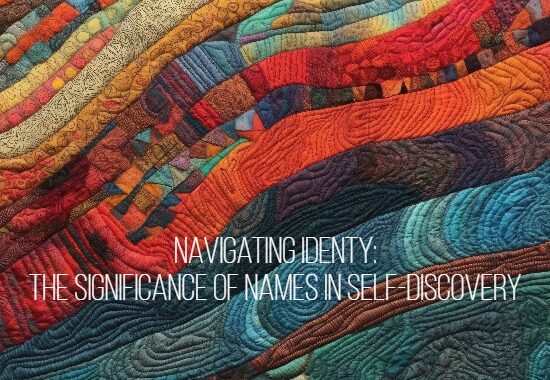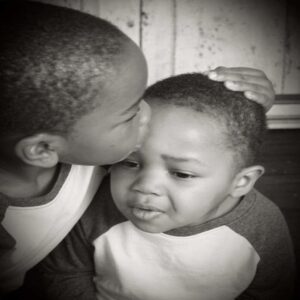Names carry weight. They are an introduction, an inheritance, a declaration of who we are—and sometimes, who others hope we’ll become.
How Our Understanding of Names in Adoption Has Grown
For those of us connected to adoption, names often sit at the intersection of identity, relationship, and lived experience. And like so much else in adoption, the way we think about names has changed over time.
In the 1970s, during the height of the closed adoption era, children like me were expected to be a blank slate. Our original names—along with our families of origin—were erased from view, replaced with new names meant to fit neatly into our adoptive families. When I was adopted, my name was changed from June to April. It was standard practice. There was little consideration for what that change might mean for a child’s sense of self, because the dominant belief was that love and a fresh start were enough.
But names aren’t just words. They are ties. They are stories. And even when severed, those ties often tug quietly at the heart.
Today, adoption looks different. Many children come into adoptive families already named. In some cases, families co-create names together. Some names carry deep cultural or familial meaning. Others are offered with reverence for the child’s birth heritage, language, or history.
Still, for many parents, the idea that a child might want to change—or reclaim—a different name can feel uncomfortable, even painful. Naming can feel like a sacred act, a gift. And it is. But that doesn’t mean it’s the only gift a child will need as they grow into their full identity.
I’ve told the story before of a young girl adopted from China by her Jewish American mother. She had a traditionally Jewish name, and over time, she began to ask for something different—something that felt more aligned with how she saw herself and how she wanted to be seen. “People expect a very different person when they hear my name,” she explained. She wasn’t trying to erase her mother’s love. She was trying to make room for her own truth. In the end, together they went about doing all of the paperwork to change the girls name back her Chinese name.
It’s also important to remember that not every name from a child’s past is one they will want to carry forward. For some, a name tied to their family of origin may activate trauma or bring up painful memories of disrupted attachment, neglect, or abuse. A name might echo voices they’ve tried to forget or experiences they are still trying to heal from. This is especially true for children whose early life experiences include loss, instability, or harm.
Children Deserve the Freedom to Redefine Themselves
This, too, must be held with compassion. Children deserve the freedom to redefine themselves—not just in celebration of their roots, but also in the healing from their wounds. Whether a child wants to reclaim a name from their past or release it altogether, what matters most is that we meet them with understanding and openness. They may be navigating a complex emotional terrain, and they need the support of family and community to feel safe doing so.
And in today’s digital world, that exploration can take many forms. Social media has given young people tools to try on names and identities—screen names, @ handles, chosen names—without permanence. For adopted persons, this can be a powerful, low-risk way to experiment with identity and discover what feels right.
As adults—especially those parenting adopted children—we must hold space for all of this: the grief, the curiosity, the creativity, and the reclamation. We can honor the names we gave with love and honor our child’s right to question, change, or expand that name as part of their journey.
Here are a few prompts to support your reflections this month: (more in post, April Exploring: What’s in a Name?)
- What stories or significance are tied to my child’s name(s), and how can I honor those meanings?
- How can I support my child in exploring or redefining their identity through names or self-expression?
- In what ways do names in our family reflect culture, connection, or history?
- Am I prepared to hear and hold the full story my child may carry about their name—including parts that are hard to hear?
Names are not just about who a child is to us. They are about who a child is to themselves—and to the world.
Let’s meet children where they are, with open hearts, ready to listen to the names they carry… and the ones they may one day choose.
Together on the journey,
April Dinwoodie, Executive Director
Posts Related to Names and Adoption
This post is from our April 2025 newsletter. If you would like to get our newsletter in your inbox each month, as well as information about our annual Transracial Journeys Family Camp and our monthly Zoom call providing support for our transracial adoption parents, please subscribe.



